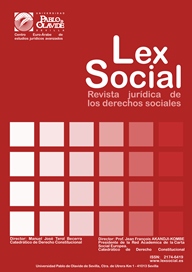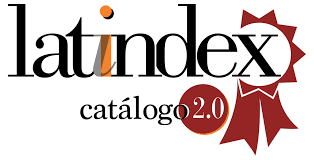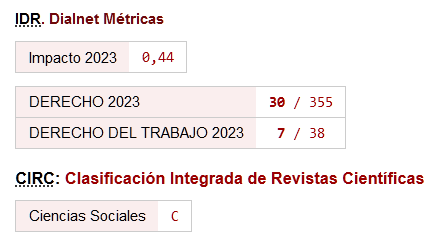Smart working and its regulatory future in Spain: proposals from the italian experience
DOI:
https://doi.org/10.46661/lexsocial.9557Keywords:
smart working, telecommuting, remote work, collective bargaining, digitization of workAbstract
Recently and, above all, since the arrival of the pandemic, interest has increased in implementing alternatives that allow remote work to be carried out. In this sense, smart working represents a clear break with the classic rigidities around a defined work schedule and place. However, as happened at the time with teleworking, the regulation of this reality does not follow a homogeneous development in the countries around us. Proof of this is that Italy, unlike what is happening in Spain, has been generating regulatory content in recent years to regulate smart working, both heteronomously and autonomously. This work aims to address this situation and aspires to make contributions that may be useful for a future regulatory debate on smart working in our country.
Downloads
References
GALLEGO MOYA, F., "La negociación colectiva española ante el reto del teletrabajo", Revista de Derecho, Núm. 22, 2021. https://doi.org/10.26441/RD22.1-2021-DE2 DOI: https://doi.org/10.26441/RD22.1-2021-DE2
GAETA, L. y TUFO, M., El teletrabajo en Italia, en ORTEGA LOZANO, en P.G. y RUIZ SANTAMARÍA, J.L. (Coords.), Innovación tecnológica, cambio social y sistema de relaciones laborales: Nuevos paradigmas para comprender el derecho del trabajo del siglo XX, Editorial Comares, Granada, 2021.
LANZADERA ARENCIBIA, E. y DE LAS HERAS GARCÍA, A., El "Smart working" como fórmula innovadora en la gestión empresarial: entre la libertad de empresa digital y los derechos laborales, en GONZÁLEZ COBALEDA, E. y MOLINA NAVARRETE, C. (Coords.), VALLECILLO GÁMEZ, M.R. (Dir.), De la economía digital a la sociedad del e-work decente: condiciones sociolaborales para una industria 4.0 justa e inclusiva, Thomson Reuters Aranzadi, Navarra, 2021.
MARTONE, M., "El smart working o trabajo ágil en el ordenamiento italiano", Derecho de las Relaciones Laborales, Núm. 1, 2018, págs. 88-97.
PÉREZ CAMPOS, A.I., "Teletrabajo y derecho a la desconexión digital", Revista ADAPT, Vol. 9, Núm. 1, 2021.
RUIZ SAURA, J.E., "La negociación colectiva en la reciente construcción del marco normativo del teletrabajo", Revista de Derecho Social, Núm. 99, 2022.
RUIZ SAURA, J.E., "Las notas de laboralidad en la actividad de un corresponsal de noticias en el extranjero", Revista Española de Derecho del Trabajo, Núm. 262, 2023.
SALANOVA SORIA, M., "Trabajando con tecnologías y afrontando el tecnoestrés: el rol de las creencias de eficacia", Revista de Psicología del Trabajo y de las Organizaciones, Vol. 19, Núm. 3, 2003.
THIBAULT ARANDA, X., "Toda crisis trae una oportunidad: el trabajo a distancia", Trabajo y Derecho, Núm. 12, 2020.
TIRABOSCHI, M., Lavoro agile e contrattazione collettiva: lo stato dell'arte, en DAGNINO, E., TOMASSETTI, P. y TOURRES, C. (Coords.), Il lavoro agile nella contrattazione collettiva oggi, Working Paper, Modena (Italia), Núm. 2/2016.
TUFO, M., Il lavoro digitale a distanza, Editorial Scientifica, Nápoles (Italia), 2021.
TUFO, M., "Il lavoro agile emergenziale: un mosaico difficile da ricomporre tra poteri datoriali e diritti dei lavoratori", Revista Giuridica del Lavoro e della Providenza Sociale, Núm. 1/2021.
VALLE MUÑOZ, F.A., Los derechos colectivos en las nuevas formas de trabajo tecnológico, Editorial Bomarzo, Albacete, 2021.
Downloads
Published
How to Cite
Issue
Section
License
Copyright (c) 2023 José Enrique Ruiz Saura

This work is licensed under a Creative Commons Attribution-NonCommercial-ShareAlike 4.0 International License.
-
Atribución — Usted debe dar crédito de manera adecuada, brindar un enlace a la licencia, e indicar si se han realizado cambios. Puede hacerlo en cualquier forma razonable, pero no de forma tal que sugiera que usted o su uso tienen el apoyo de la licenciante.
-
NoComercial — Usted no puede hacer uso del material con propósitos comerciales.
-
CompartirIgual — Si remezcla, transforma o crea a partir del material, deberá difundir sus contribuciones bajo la misma licencia que el original.



 @Lex Social
@Lex Social Linkedin
Linkedin @lexrevista.bsky.social
@lexrevista.bsky.social


